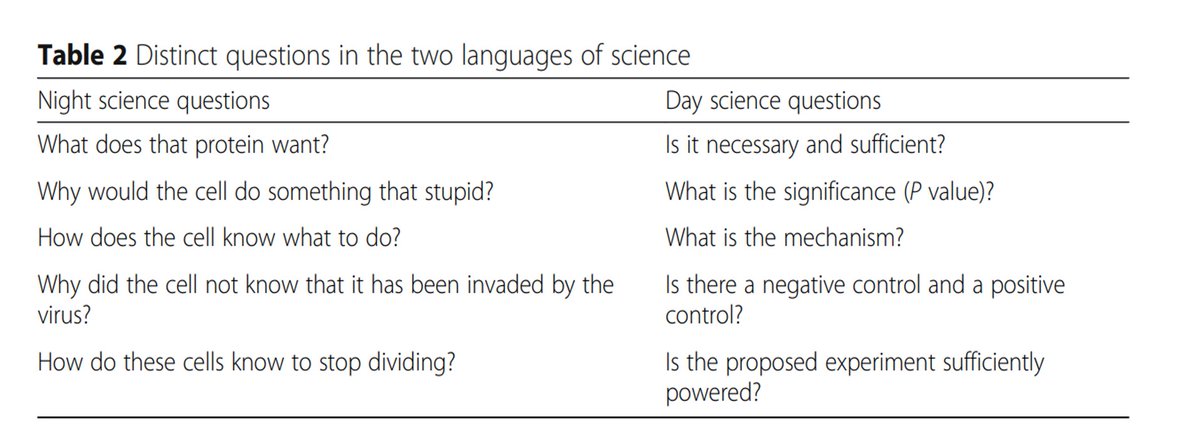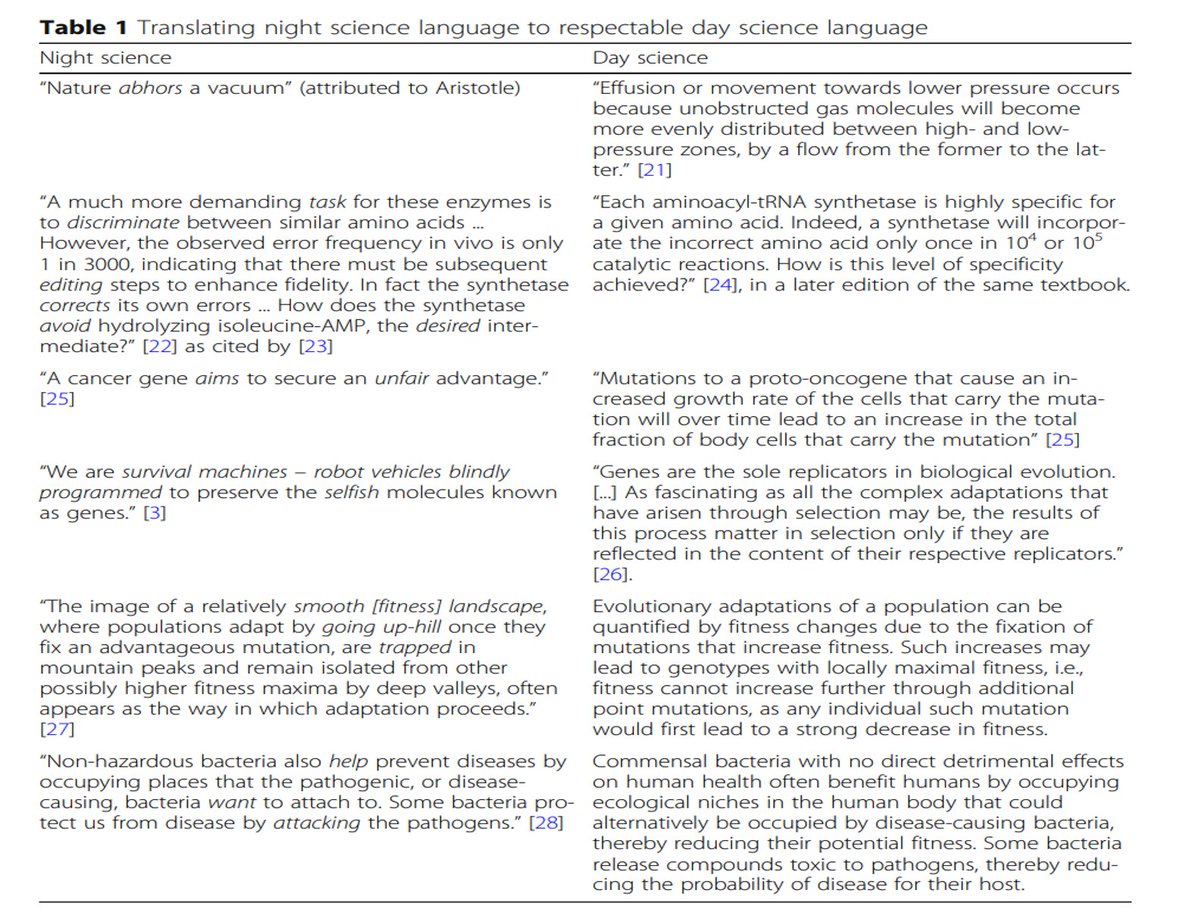It is no secret that there are actually two languages of science.
On this day – exactly 100 years since the birth of Francois Jacob - check out our new Night Science piece to read all about it.
https://genomebiology.biomedcentral.com/articles/10.1186/s13059-020-02057-5
[Twitter">https://genomebiology.biomedcentral.com/articles/... summary below]
On this day – exactly 100 years since the birth of Francois Jacob - check out our new Night Science piece to read all about it.
https://genomebiology.biomedcentral.com/articles/10.1186/s13059-020-02057-5
[Twitter">https://genomebiology.biomedcentral.com/articles/... summary below]
In no small part, the amazing success of modern science in learning about our world is rooted in its rigorous structure: scientists clearly lay out assumptions, design conclusive experiments with the appropriate controls, and use statistical methods to assess our confidence.
Students are taught not to anthropomorphize when thinking or talking about biology, and many a student has had their assignment edited in red ink by their professor with the epitaph “Do not anthropomorphize!”.
Is anthropomorphic language – the personification of non-human objects such as cells, proteins, and genes – a bad habit that we should all strive to eradicate, or could a case be made for its usefulness?
While the language of day science facilitates the precise formulation and testing of scientific ideas, it is not particularly conducive to the creation of new ideas.
As humans, we require a language permissible to intuition – one that gives us a “feeling” for the phenomenon.
This is the language of night science. In night science language, we are allowed to anthropomorphize freely, helping us to grasp why and how something may be happening. Night science language is not precise; but what we lose in rigor, we gain in intuition.
We ask “what does the organism want?”. We put ourselves into the shoes of a gene. We ponder the best strategy for a genome in a given situation.
But while this kind of language seems inaccurate and misleading, in many ways it is simply shorthand for respectable day science language. Scientific statements expressed in the anthropomorphizing terms of night science can be rephrased in the language of day science.
Night science language not only helps to provide an intuition about complex ideas. For the generation of some important new ideas it is absolutely necessary, as not every metaphorical night science idea is translatable one-to-one from the outset into precise day science language
When our brain operates in its creative mode, we should not be expected to speak precisely about an idea only being born; this is not the time for day science aspects such as statistics and controls.
We need both of those modes; and scientists advising their students to not anthropomorphize (instead of telling them when to anthropomorphize) may be doing science a disfavor. Night science language unlocks the potential for fast, intuitive exploration; in it we all become poets.

 Read on Twitter
Read on Twitter![It is no secret that there are actually two languages of science. On this day – exactly 100 years since the birth of Francois Jacob - check out our new Night Science piece to read all about it. https://genomebiology.biomedcentral.com/articles/... summary below] It is no secret that there are actually two languages of science. On this day – exactly 100 years since the birth of Francois Jacob - check out our new Night Science piece to read all about it. https://genomebiology.biomedcentral.com/articles/... summary below]](https://pbs.twimg.com/media/EawUFyeXsAMc6UB.jpg)




